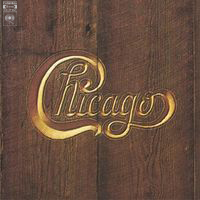
Chicago V is the fourth studio album by American rock band Chicago and was released on July 10, 1972. It is notable for being the group's first single album release, after having released three consecutive double albums and a four-disc box set of live material.

Chicago VI is the fifth studio album by American rock band Chicago and was released on June 25, 1973. It was the band's second in a string of five consecutive albums to make it to No. 1 in the US, was certified gold less than a month after its release, and has been certified two-times platinum since. It is the first album to feature percussionist Laudir de Oliveira, who would become a full-fledged member of the band for Chicago VIII. VI is the first studio album to feature the original band members on the cover before the death of leader and co-founder Terry Kath.

Chicago VII is the sixth studio album by American rock band Chicago and was released in 1974. It is notable for being their first double album of new material since 1971's Chicago III and remains their final studio release in that format. It features session percussionist Laudir de Oliveira, who would become a full-fledged band member for the release of Chicago VIII the following year.
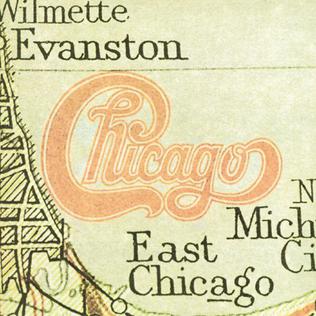
Chicago XI is the ninth studio album, and eleventh album overall, by the American band Chicago. It was released on September 12, 1977 through Columbia Records. It was both the last to feature guitarist and vocalist Terry Kath prior to his death in a gun accident just over four months later, and the last to be produced by longtime associate of the band James William Guercio.
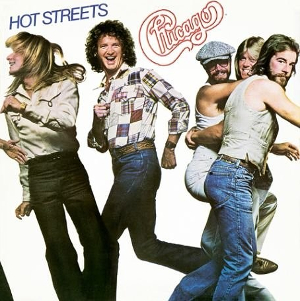
Hot Streets is the tenth studio album by the American band Chicago, released in 1978. This was the band's first album with all-new material released since their second that did not have a numbered title. It was also the first album not to feature original guitarist/vocalist Terry Kath, who died from an accidental self-inflicted gunshot wound in January 1978. He was replaced by Donnie Dacus on this album.

"Saturday in the Park" is a song written by Robert Lamm and recorded by the group Chicago for their 1972 album Chicago V. It was very successful upon release, reaching No. 3 on the Billboard Hot 100, and became the band's highest-charting single at the time, helping lift the album to No. 1. Billboard ranked it as the No. 76 song for 1972. The single was certified Gold by the RIAA, selling over 1,000,000 units in the U.S. alone.

"Questions 67 and 68" is a 1969 song written by Robert Lamm for the rock band Chicago and recorded for their debut album Chicago Transit Authority. It was their first single release. Peter Cetera is the primary lead singer with Lamm also on vocals. In 2015, Dave Swanson, writing for Ultimate Classic Rock, listed the song as ninth in a list of top ten Chicago songs. Writing for Rock Cellar magazine, Frank Mastropolo rated the song as number 11 in a list of "Top 11 Question Songs".

"Beginnings" is a song written by Robert Lamm for the rock band Chicago Transit Authority and recorded for its debut album Chicago Transit Authority, released in 1969. The song is the band's second single, but failed to chart on its initial release.

"Lowdown" is a song written by Peter Cetera and Danny Seraphine for the rock band Chicago and recorded for their third album Chicago III (1971). It was the second single released from this album, and peaked at No. 35 on the U.S. Billboard Hot 100. Cetera provided lead vocals while guitarist Terry Kath used a fuzzbox and wah-wah pedal for his guitar solo and Robert Lamm made prominent use of the Hammond organ.

"Dialogue" is a song written by Robert Lamm for the group Chicago and recorded for their album Chicago V (1972). On the album the song is over 7 minutes long and is divided in two parts. An edited version was released as a single in October 1972, eventually reaching #24 on the U.S. Billboard Hot 100.

"Feelin' Stronger Every Day" is a song written by Peter Cetera and James Pankow for the group Chicago and recorded for their album Chicago VI (1973). The first single released from that album, it reached #10 on the U.S. Billboard Hot 100.

"Just You 'n' Me" is a song written by James Pankow for the group Chicago and recorded for their fifth studio album Chicago VI (1973). The lead vocals are sung by bassist Peter Cetera.

"(I've Been) Searchin' So Long" is a song written by James Pankow for the group Chicago and recorded for their album Chicago VII (1974). The first single released from that album, it reached number 9 on the U.S. Billboard Hot 100. It also hit number 8 on the Adult Contemporary chart. In Canada, the song peaked at number 5.

"Wishing You Were Here" is a song written by Peter Cetera for the group Chicago and recorded for their album Chicago VII (1974), with lead vocals by Terry Kath, while Cetera sang the song's bridge. The third single released from that album, it reached No. 11 on the U.S. Billboard Hot 100, No. 9 on the Cash Box Top 100, and hit No. 1 on the Easy Listening chart.
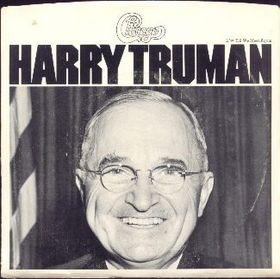
"Harry Truman" is a song written by Robert Lamm for the group Chicago and recorded for their album Chicago VIII (1975), with lead vocals by Lamm. The first single released from that album, it reached number 13 on the U.S. Billboard Hot 100. It also reached number 23 on the Adult Contemporary chart. In Canada, the song peaked at number 16.
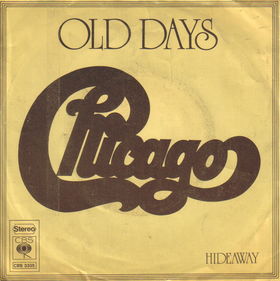
"Old Days" is a song written by James Pankow for the group Chicago and recorded for their album Chicago VIII (1975). It was the second single released from that album with lead vocals by Peter Cetera.

"Another Rainy Day in New York City" is a song written by Robert Lamm for the group Chicago and recorded for their album Chicago X (1976). Described as "the only typical Chicago cut on the album[:] upbeat and light with good blending of lead vocal by [Peter] Cetera", the track would be the album's lead single but was largely passed over for radio airplay in favor of the album cut "If You Leave Me Now". Rush-released as a single, "If You Leave Me Now" debuted on the Billboard Hot 100 of 14 August 1976 at No. 60 - on its way to No. 1 - and immediately eclipsed "Another Rainy Day..." which on the same chart fell to No. 46 from its No. 32 peak. "Another Rainy Day..." peaked at No. 2 on the Billboard Adult Contemporary chart. Billboard described the song as "a pop /jazzy rocker with a touch of reggae flavor." Cash Box said that "the lyric is good, really creates a mood." Record World called it a "Caribbean-styled number is handled with the band's consummate professionalism and good taste."

"Baby, What a Big Surprise" is a power ballad written by Peter Cetera for the group Chicago and recorded for their album Chicago XI (1977), with Cetera singing lead vocals. The first single released from the album reached number 4 on the US Billboard Hot 100 chart.

"Alive Again" is a song written by James Pankow for the group Chicago and recorded for their album Hot Streets (1978), with Peter Cetera singing lead vocals. The first single released from that album, it reached No. 14 on the U.S. Billboard Hot 100 chart. In Canada, "Alive Again" spent two weeks at No. 11.

"Brand New Love Affair" sometimes alternatively listed as "Brand New Love Affair (Parts I and II)", is a song written by James Pankow for the group Chicago and recorded for their album Chicago VIII. The song peaked at #61 on the charts. Guitarist Terry Kath sings the first half while bassist Peter Cetera sings the second half. Keyboardist Robert Lamm played the distinctive Fender Rhodes electric piano on the song—the intro particularly showcases its lush vibrato bell-like sound.




















